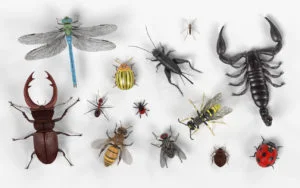You probably know that the outdoor component of your air conditioner, the condenser/compressor, is built to be sturdy and withstand the elements. More than likely, you give it little thought, expecting that the strong metal housing that surrounds it is sufficient protection against anything that can happen. Under most circumstances, this would be true. But condensers are damaged more often than you might think -- principally from careless practice during yard maintenance.Read on and learn how to improve your HVAC outdoor unit safety.
Tips for Maintaining Condenser Safety
Maintain a 2-foot clearing around the condenser.
Remove all grass, weeds and shrubbery within a 2-foot area so that the condenser can maintain good air flow. Trim back any overhanging limbs that might fall on the unit during a storm.
Create a weed-free layer of pebble rocks or stones around the concrete base of the condenser.
Add a plastic layer under the rocks or stones to inhibit weed growth. If weeds do take root, don't use a weed whacker to remove them, as these appliances can throw rocks into the fins hard enough to make a hole and even damage the coils. The purpose of the rock or stone bed is to inhibit the growth of weeds or grass around the condenser so that you don't have to mow or whack them, and so that the clippings don't end up in the fins or coils.
Point the mower away from the condenser.
Make sure that grass clippings are blown away from the condenser, as they can clog the fins or coils and affect air flow.
Don't cover the condenser.
Some homeowners cover the condensers to protect them from storms or flying debris, but sometimes, these covers cause more problems than they solve. A covered condenser can make a comfy home for vermin, and also may promote the growth of mold. If you're concerned about hail, it's best to erect a sturdy box or barrier around the unit that allows adequate air flow.
For more on HVAC outdoor unit safety, contact Air Assurance of Broken Arrow.
Our goal is to help educate our customers in the Tulsa and Broken Arrow, Oklahoma area about energy and home comfort issues (specific to HVAC systems). For more information about other HVAC topics, call us at 918-217-8273.









